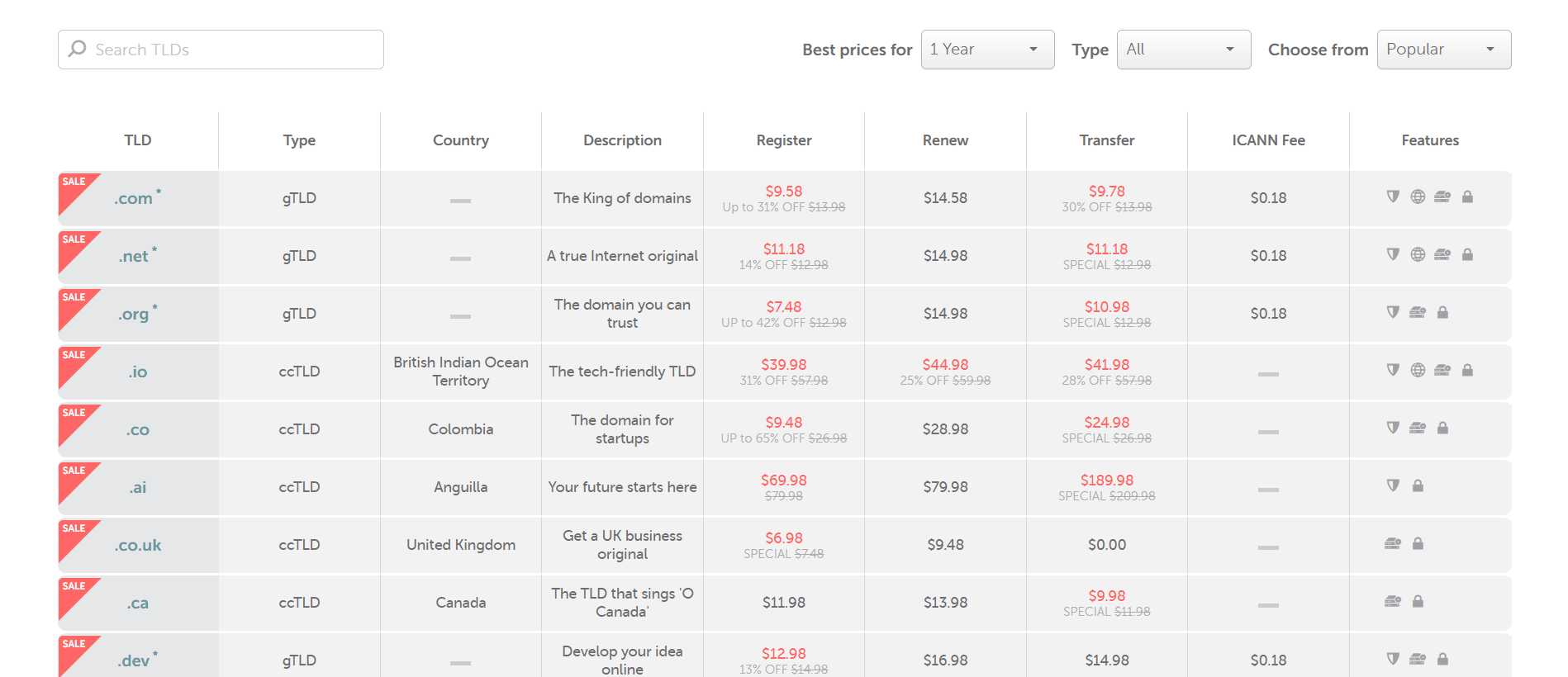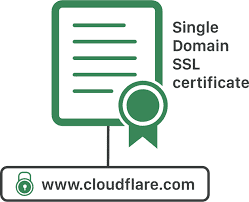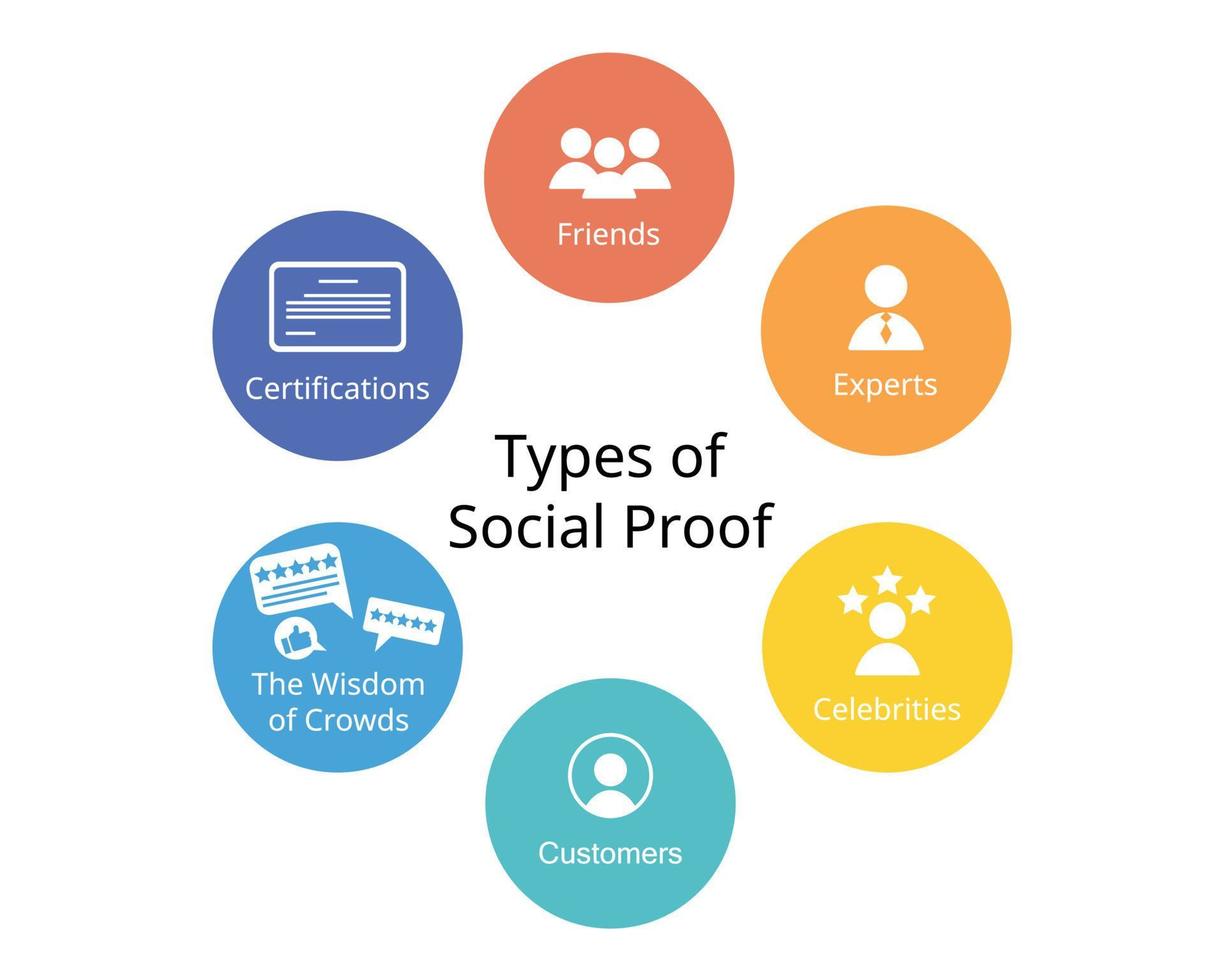Are you ready to take your business online? Knowing how to grow expand and exit your business online can be tricky but it doesn’t have to be.
With the right strategies and tools, anybody with an entrepreneurial spirit can master digital marketing, build successful platforms and create a thriving e-commerce business.
In this blog post we’ll reveal 10 tips to Grow Expand and Exit Your Business Online that will help you make the most of the opportunities available with taking your business online today.
Whether you are looking for advice on how to leverage web services or want to know more about developing an effective digital marketing plan – these tips will provide valuable insight into building a successful online business!
1. Build Your Online Presence with Own Domain
The internet has become an essential tool for businesses of any size. It provides businesses the ability to market their products and services, engage with customers, create new connections and opportunities, and even increase their revenue.

As more businesses are turning to the internet as a source of growth, it is even more important to build your online presence with your own domain. By having your own domain, you will not only be able to protect your brand identity but also help improve your visibility on search engine rankings.
Having your own domain gives you control over how you present yourself online and allows you to customize it according to your business needs.
It gives potential customers the impression that you are a trustworthy and credible business, as they will be able to easily find information about your company on the web by using this domain. Additionally, having a unique domain name makes it easier for customers to remember who you are and makes it easier for them to contact you or purchase items from you directly through the website.
When creating a domain name, try to make sure it is easy to remember yet still relevant to what your business does.
The most common choices are .com domains because they are recognizable and represent professionalism in most cases.
In addition, if possible make sure that the address contains keywords related to what your business does so that potential customers can find you easily when searching for those words online.
Creating a website associated with this domain should also be part of building an online presence for any business looking for growth opportunities.
Having a website enables customers to learn more about what your company offers at any time of day or night from anywhere in the world.
Furthermore, websites come in handy during times when stores must temporarily close due to pandemics or other unforeseeable situations since they offer another way for customers purchase products without needing physical access.
Finally, once these steps have been taken it is important that businesses use social media platforms such as Facebook, Instagram or Twitter regularly in order keep their presence active and visible online while engaging with potential customers or informing them about changes in product availability or service times etcetera.
Doing so helps build trust between businesses and their target audience while also strengthening relationships between companies and their current clientele base by providing them up-to-date information at all times thus increasing loyalty towards your brand long-term which is one of the main objectives of any successful business venture out there today!
2. Host Your Website on a Reliable Web Host
Hosting your website on a reliable web host is essential if you want to grow, expand and exit your business online.
A reliable web host is one that provides good quality hosting services such as high speeds, secure connection, storage space and customer service so that you can easily manage your website without any difficulties.

A reliable hosting provider must also have a good reputation for providing the best features and services for its customers. It should be able to provide support during emergencies or unexpected problems that may arise when managing your website.
The hosting provider should also be able to offer backup solutions in case of loss of data or server failures.
This type of backup solution helps ensure that whatever happens to the website will not affect its content and functionality.
When choosing a web host, it is important to look for reviews from previous customers who have used their services in the past.
This will give you an idea of how satisfied they are with the service provided by the hosting provider. You should also consider the price range and make sure that it fits into your budget before signing up with any web host.
Another important factor to consider is the bandwidth available which will determine how quickly your website is loaded on visitors’ browsers.
Higher bandwidth allows more people to access your site simultaneously without affecting its performance or loading speed.
The customer service provided by the web host should be excellent as this will enable them to answer questions promptly and accurately when users require help with their websites or account management tasks.
The customer service team should also provide 24/7 technical support so that any issues can be addressed quickly and effectively without disrupting normal operations.
In conclusion, choosing a reliable web host is essential if you want to grow, expand and eventually exit your business online successfully.
With good quality hosting services such as high speeds, secure connections, storage space, and customer service, having a robust environment for running your business becomes easier than ever before.
Make sure to do adequate research about different web hosts available before signing up with anyone so that you can choose one whose features and services best meet your business needs!
3. Implement HTTPS
When you think of growing, expanding, and exiting your business online, one of the key protocols you should consider is known as HTTPS`. This stands for Hypertext Transfer Protocol Secure and it’s an extension of the traditional HTTP protocol used for data communication on the web.

In short, it adds a layer of security to protect traffic between servers and browsers and prevents attackers from stealing or manipulating transferred data.
HTTPS provides several advantages when it comes to online business operations. For starters, it reduces the risk of data breaches by encrypting any information sent over the internet such as credit card numbers or personal details.
Furthermore, it helps establish trust with customers since visitors will feel safer browsing an HTTPS website than an unsecured one; this can ultimately lead to higher conversion rates. Another crucial benefit is that Google now ranks HTTPS websites higher in search engine results page than those without; thus, boosting visibility.
How to Implement HTTPS?
Once you’re ready to add HTTPS to your site, there are a few steps that need to be taken.
First things first, obtain an SSL certificate from a trusted Certificate Authority (CA). This will validate your domain and allow browsers to establish a secure connection with your website when visited.
Next, configure your server with the proper settings such as protocol version and cipher suite so that only secure requests are accepted by the server. Finally, update all internal links on your site so they point towards their respective secure versions instead of plain HTTP URLs; you can use 301 redirects if necessary here as well.
Once these three have been completed properly, users should be able to access the site via the secure protocol going forward with no further action needed on your end!
In conclusion, implementing HTTPS is essential in today’s online environment in order to grow and expand your business while keeping customer data safe at all times.
Though setting up may require some technical know-how if done manually (or by hiring someone else), there are plenty of tutorials available online that make it easy for anyone with basic web development/server management skills!
4. Optimize Website Speed
Optimizing website speed is one of the most important steps for businesses to take when aiming to grow, expand, and exit online.
While having a well designed and easy-to-navigate website is essential for driving customer engagement, a slow-loading web page can not only impact user experience but also negatively affect your company’s visibility in search engine results.
To combat this problem, there are a few simple steps that business owners can take to improve their website’s loading speed.
The first step is to compress all images on your website. Though high resolution images can look great on your website, they can also significantly increase load times.
Utilizing image compression tools like JPEGmini or TinyPNG will help you to reduce file size while ensuring minimal loss of quality.
Another strategy that businesses should utilize is caching their data on the server side. This allows them to store information in the browser’s cache so that it doesn’t have to be loaded from the server for each new request.
Caching helps pages load much faster by reducing the amount of requests made between your server and the users computer.
Additionally, businesses should ensure that their hosting provider has optimized their servers for peak performance as well as consistently monitor any bottlenecks or problems with their site’s performance.
Lastly, if possible, it is beneficial for companies to switch from implementing HTTP requests to HTTPS which offers better security as well as improved loading speeds since it enables browsers and servers to upload files with fewer disruptions.
By following these tips, businesses will be able to optimize their website speed and ensure maximum customer satisfaction with minimal delays in loading times when navigating through pages on their websites.
With improved loading speeds comes increased visibility in search engine results which can help drive more customers and leads over time – increasing opportunities for growth, expansion, and profitability online!
5. Track Website Analytics & Set Goals
If you are looking to grow, expand and exit your business online, then understanding and tracking website analytics is a vital part of the process.
Web analytics can help illuminate the success of your business model by measuring key performance indicators such as page views, session duration, bounce rate, user behavior, and more.
By analyzing this data and trends, you can gain an understanding of how users interact with your site which can be used to improve customer experience and overall website performance.
One of the most important steps in using website analytics to grow your business is setting goals for yourself. Setting measurable objectives allows you to evaluate the effectiveness of your efforts and measure how well they contribute to achieving desired results.
It also helps you identify areas for improvement so that you can focus on what’s working and adjust what’s not.
Creating specific goals based on user behavior, such as increasing time on site or decreasing bounce rate will allow you to track progress towards achieving those targets.
Once you have clearly defined goals for your website, it’s time to start tracking them using web analytics tools like Google Analytics or KISSmetrics.
You can set up custom reports that show visitors over time or segment data by type of device used or geolocation. This will provide insight into who’s coming to your site, where they’re coming from, when they arrive, and what they do while they are there.
Additionally, assessing user behavior allows you to make more informed decisions about changes in design or content that could potentially improve customer experience or increase conversions.
Using website analytics doesn’t just give insight into user behavior – it also provides invaluable information about how well campaigns are performing and how successful content marketing initiatives are within targeted audiences.
The data collected from web analytic tools should be used as a guide in developing effective strategies for growing your business’s presence online as well as optimizing marketing efforts in order to drive greater ROI.
In conclusion, tracking website analytics is essential for staying competitive in today’s crowded digital marketplace while setting measurable goals will enable businesses to measure progress toward their objectives.
When these two pieces of the puzzle come together businesses can confidently assess the effectiveness of their strategies while having the insights needed to make any necessary adjustments in order to reach their desired level of success online.
6. Keep Your Site Visitors Happy

As businesses of all sizes continue to strengthen their online presence, it’s important to ensure that visitors are having a positive experience when they come to your website.
Having happy site visitors can help grow, expand, and even exit your business in the long run. Here are a few tips to keep your site visitors satisfied.
The first step is to create an easy-to-navigate website that is well-organized and user-friendly. This means using clear language and descriptive headings that accurately explain what each page or section contains.
In addition, it’s important to include clear call-to-actions on each page that encourages users to take action such as signing up for newsletters or promotions, making purchases or downloading content.
In order for a site visitor to have a pleasant experience on your website, it’s crucial to make sure that your page loads quickly. Slow loading times can cause visitors to become frustrated and leave the page before having a chance to explore further.
Using optimized images for fast loading speeds as well as minimizing any unnecessary plugins can help improve loading time significantly.
Providing helpful information within a relevant context is also essential for keeping visitors engaged and satisfied with their experience on your website.
This includes answering questions in FAQ sections, providing helpful tutorials or downloadable content such as PDFs, ebooks or checklists — anything that can help provide value and be of use to potential customers.
Finally, considering the customer service aspect is also important when trying to keep site visitors happy. Offering support through live chat offers customers instant access whenever they need assistance with something related to your product or service.
In addition, responding quickly and efficiently via email helps build customer loyalty while offering excellent service will increase customer satisfaction significantly.
By following these tips, you can ensure that those who visit your website will have an enjoyable experience and are more likely to become loyal customers in the future — helping you grow and succeed with your business online!
7. Add Social Proof to Your Website
Adding social proof to your website is a great way to boost the credibility of your business and gain the trust of potential customers.
Social proof is anything that demonstrates that other people have experienced satisfaction or success after using a product, service, or brand.

It could be quotes from customers, user reviews, awards and certifications, industry endorsements, and more.
When the content on a website includes social proof elements such as customer testimonials, case studies, press mentions, influencer recommendations, and reviews it shows assurance to potential customers that they can rely on their purchase decision.
This type of evidence helps in improving conversions and building trust with users by highlighting positive experiences and feedback from existing customers.
Social proof also motivates new prospects to take action by showing them that others like them have had success using your products or services.
In order for this strategy to be effective, you should ensure the content you select supports your brand message and offers accurate information about your offering. You should also use visuals wherever possible as this can help draw attention to key elements of your message.
Another way to add social proof is through user-generated content (UGC).
UGC provides an opportunity for brands to showcase the enthusiasm of their current customers in an organic and authentic way.
Platforms like Instagram are perfect for showcasing UGC images – both static shots or videos – which can be used across marketing channels like email campaigns and social media platforms such as Twitter or Facebook.
In addition, if you have any industry awards or certifications relevant to your business these should be prominently displayed on the site in order to demonstrate integrity and authority within the marketplace.
Furthermore, when featuring other companies’ logos as part of your client portfolio make sure they link back directly to those organizations’ websites in order to further increase trustworthiness with potential partners who may visit the site looking for more information about you.
Overall, adding social proof elements to your website is essential in today’s crowded online marketplace; it not only increases consumer confidence but also provides an option for businesses to stand out from the competition by demonstrating what makes them unique amongst their peers.
8. Optimize for Higher Search Rankings (SEO)
Optimizing for higher search engine rankings (SEO) is one of the most important aspects of digital marketing and can make or break a business’s success.
SEO is the process of improving a website’s visibility in search engine results, with the goal of driving more targeted organic traffic. In other words, if you want to be found online, you need to focus on SEO.

There are many different tactics that can be implemented to improve your website’s ranking in search engines such as Google, Bing, and Yahoo. One of the most important elements is content optimization.
This involves optimizing existing content on your website by adding relevant keywords and phrases throughout the text that users may use when searching for related topics on a search engine.
Additionally, it is important to create fresh and unique content as often as possible in order to increase your chances of appearing higher on the SERPs (search engine result pages).
Another key element of a successful SEO strategy is link building. Link building involves gaining backlinks from other websites with high authority; these will help boost your website’s visibility in search engine results by providing ‘votes’ indicating that your site is valuable and trustworthy.
There are a variety of link-building strategies that businesses can employ such as guest posting on external websites or blogs which involve creating posts that drive traffic back to their own sites, creating infographics that are then shared across various networks and earning links through outreach campaigns where bloggers/influencers are contacted asking them to feature content from the company website on their own platform.
Finally, local SEO should not be forgotten when attempting to optimize for higher search rankings.
Local SEO helps businesses appear more prominently in local searches; this includes having an up-to-date Google My Business page listing all pertinent information about your business such as opening hours, contact details, and location information.
Additionally, optimizing images with geo-tags so they appear in local image searches and using local keywords are also effective ways to rank higher locally.
Overall, SEO remains an essential part of any digital marketing strategy for businesses looking to grow, expand or exit online – optimizing for better rankings will result in increased brand awareness and more qualified leads being driven back to their site leading to greater sales opportunities over time.
Consequently, it is worth investing time into learning about best practices associated with SEO and implementing them across all aspects of a business’s digital presence if they want its venture to thrive online!
9. Be Present on Social Media Networks
As a modern business, having an online presence is essential for success. It’s no longer enough to just have a website – the presence of social media networks has changed the game.
In order to grow and expand your business, it’s important to be present on social media networks like Facebook, Twitter, Instagram, LinkedIn, and YouTube.
Being active and engaged on these platforms can help you reach more potential customers while also allowing you to build relationships with them.
You can use content posted on these sites to generate interest in your brand and create conversations with current and potential customers.
This helps you become more visible, thus increasing your chance of success.
By staying active across different social media channels, you can develop trust and loyalty among users who follow your brand.
Furthermore, by regularly engaging with followers through comments, messages, or other forms of interaction, you can create a sense of community among them.
The more engaged a user is with your brand online, the more likely they are to purchase from you in the future.
Social media networks provide businesses with powerful advertising tools that allow them to target very specific audiences with promotions tailored specifically for them.
Additionally, many platforms offer analytics tools that allow you to track performance in real-time and measure how effective your campaigns are at reaching their intended audience.
This data can then be used to adjust strategies as needed in order to get the most out of your campaigns.
Overall, having a strong presence on social media networks is an important part of growing and expanding any business online today.
Investing time into developing an active presence will pay off in terms of increased visibility, better customer engagement and increased profits down the line when it comes time for exiting the business online world successfully.
10. Scale Up with the Right People
When it comes to growing and expanding a business online, one key element that many entrepreneurs often overlook is the importance of having the right people on your team.
Scaling up your operations with the right people can have a huge impact on your success and profitability, so it’s important to take the time to make sure you have exactly who you need for each job.
The first step in finding the perfect team is to identify what areas of expertise you need in order to grow your business.
Depending on your particular industry, this could include anything from marketing and sales professionals to website developers or financial advisors.
Once you know what roles are necessary for success, it’s time to get creative when searching for talent. You may want to look at local networking events or job fairs, as well as online job boards like LinkedIn or Indeed.
A more direct approach is always helpful too; reach out directly to potential candidates by posting ads on sites like Craigslist or even contacting select individuals who might be interested in working with you.
Once you identify potential hires, conduct interviews or assessments that will help determine which candidates are most qualified for the job.
When interviewing, be sure that you ask questions related not only to experience but also attitude; look for passion and enthusiasm from candidates since these qualities can be just as valuable as technical knowledge.
Additionally, consider whether a candidate’s skills align with the specific tasks they will have within the company; if someone’s strengths don’t match up with their role then they won’t be able to perform optimally within that position.
Finally, when it comes down to actually hiring your team members make sure that you offer competitive salaries; remember that talented professionals won’t settle for less than market value so don’t lowball them!
Also, keep an eye out for potential conflicts of interest between employees – especially if someone has been hired away from a competitor – since these could lead to problems down the line if not addressed properly.
At its core, scaling up successfully requires having the right people in place who possess both the hard skills and soft skills necessary for success.
While it may take some work initially identifying top notch talent, taking this extra step can ensure your business stays ahead of the competition while continuing its upward trajectory online.
Quick Links:
Conclusion: Tips to Grow Expand and Exit Your Business Online 2025
All in all, there are a number of ways to expand your business online. These 10 tips should give you a good starting point.
However, as with anything related to business growth, it’s important to take things slowly and steadily – lest you find yourself overwhelmed and stressed out. Remember to always put your customers first, and the rest will follow suit!

